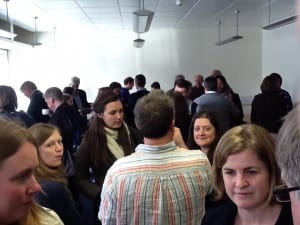Two of my former PhD students (Nicola Gregory and Sarah Bate) and ex post-doc (Ben Parris) were among the presenters at this years spring EPS meeting in Hull.
Nicola Gregory’s work described how processing of socio-biological cues is affected following damage to a part of the brain known as the orbitofrontal cortex, while Sarah Bate’s presentation described how people with prosopagnosia (so called “face blindness”) can benefit with treatment using the drug Oxytocin applied using a simple nasal spray. The drug has the effect of making them better at recognising faces they have seen before.
 Ben Parris’s work looks at how cognitive function can be influenced through hypnosis. His remarkable results show how the “Stroop effect” (in which people are slower to name the colour of words which spell out another colour e.g. “RED” printed in blue) can be eliminated under certain conditions simply by placing the suggestion in peoples mind that the words are written in an incomprehensible language.
Ben Parris’s work looks at how cognitive function can be influenced through hypnosis. His remarkable results show how the “Stroop effect” (in which people are slower to name the colour of words which spell out another colour e.g. “RED” printed in blue) can be eliminated under certain conditions simply by placing the suggestion in peoples mind that the words are written in an incomprehensible language.
The Conference also included a symposium on associative learning in honour of Geoffrey Hall and an excellent talk on decision making for self and others by University of Lincoln’s own Fenja Ziegla, as well as my own work on rule learning in People with Parkinsons.










